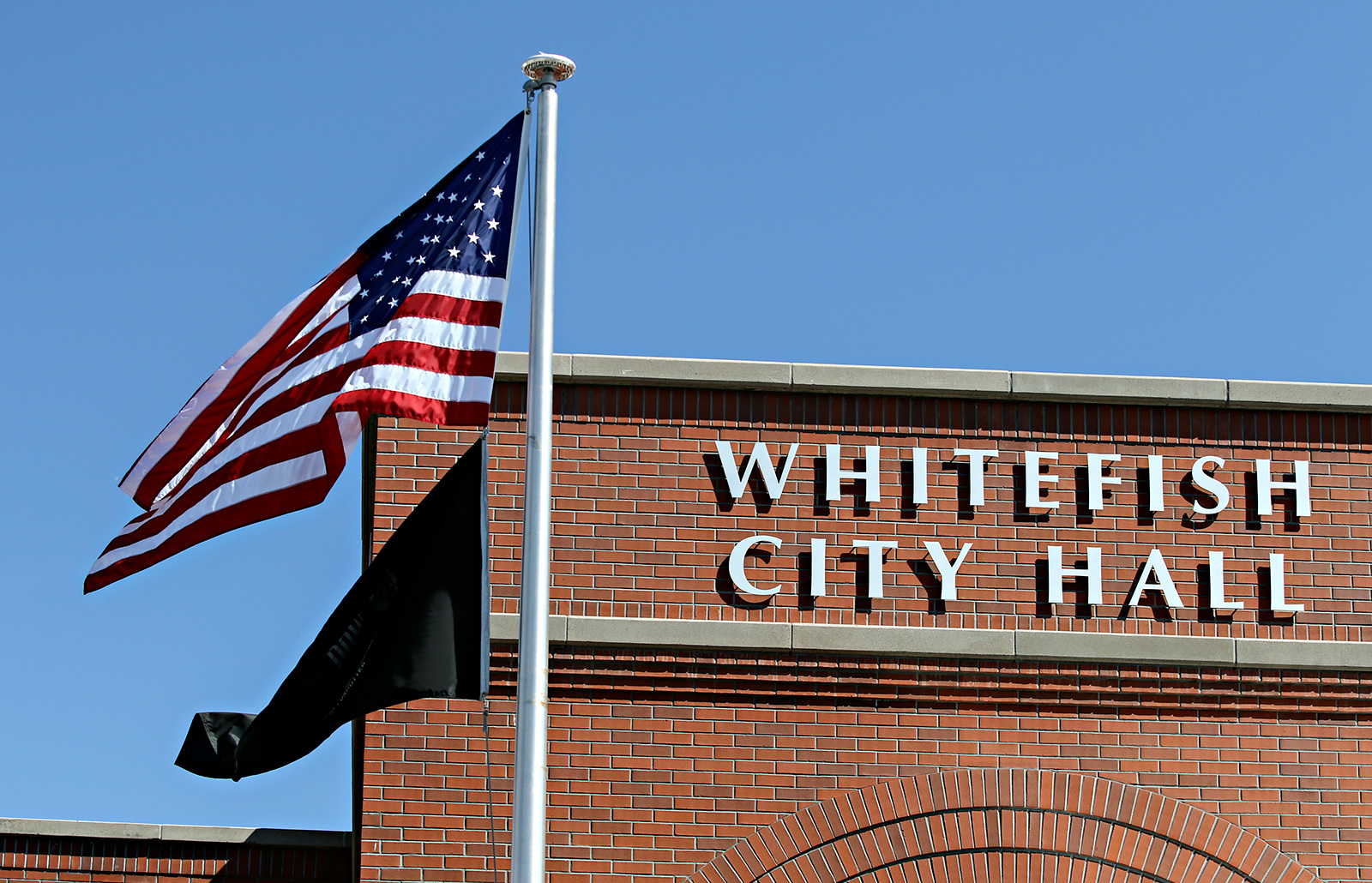Whitefish Council Votes for New Annexation Surcharge
City staff characterized the surcharge as a necessary measure in response to some Flathead County property owners’ efforts to avoid building permit fees and routine inspections by building before requesting annexation
By Mike Kordenbrock
The Whitefish City Council on Tuesday night voted in support of a new measure establishing a fee for property owners who request annexation after beginning construction, something that city staff characterized as a necessary measure in response to issues created by some Flathead County property owners’ efforts to avoid building permit fees and routine inspections before trying to connect to city utilities through annexation requests.
The safety issue, as explained by Public Works Director Craig Workman, stems from the city potentially annexing properties without any knowledge of how they were constructed. That could lead to undiscovered building code violations for things like plumbing and electrical which could endanger occupants of the structure and, in the case of something like a fire, neighbors or an even larger segment of the population.
The new fee, called an annexation surcharge, is calculated based on project valuation, with the baseline starting at $5,000 for projects valued at $500,000 or less. The annexation surcharge increases from there in $2,500 increments based on the value of the project. A memo prepared by city staff shows that once a project’s value reaches a new $500,000 value tier, the surcharge goes up. Workman told the council that the surcharge is based on what the city would otherwise charge for building permit fees if a project was undertaken in city limits.
A table laying out the annexation surcharge costs shows that, in the case of a project between $500,000 to $1 million in value, for example, the city would require a payment of $7,500, while for a project valued at between $1 million and $1.5 million, the surcharge would come out to $10,000.
Workman told the council that the annexation-related construction issue was identified while the city was updating its Extension of Services Plan in 2021, leading staff to add language at the time saying that “requests for connections outside City limits for constructed dwellings not previously connected to a septic system or private well will be subject to a surcharge,” and that “after-the-fact inspections may also result in additional costs to the property owner associated with ensuring compliance with state and local plumbing codes and City engineering standards.”
Councilor Ben Davis missed the meeting with an excused absence, but the remaining members of the council voted in favor of the new surcharge, although there was some discussion about whether or not it would be enough.
Given the nature of the problem, Councilor Steve Qunell said he wondered if the city needed to be charging more, remarking that a $17,500 surcharge on a $2.5 million home amounted to “a rounding error” for property owners.
In response, Workman said the city had other “sticks” it could use, but that he believed collecting the assessment would go a long way toward deterring this type of annexation practice.
Still, Councilor Rebecca Norton remained skeptical that enough was being done to reduce potential risks to neighbors, like in the event of a fire, or a land-erosion problem.
“I think the big stick you have is if somebody is potentially trying to forego inspections, or paying building permit fees, you guys can always choose not to annex somebody,” City Attorney Angela Jacobs said, adding later that “not annexing somebody after they’ve built their home is a pretty big stick.”
Jacobs also encouraged the council to document on future resolutions of annexation instances in which the city was unable to perform an inspection and issue a certificate of occupancy before annexation.